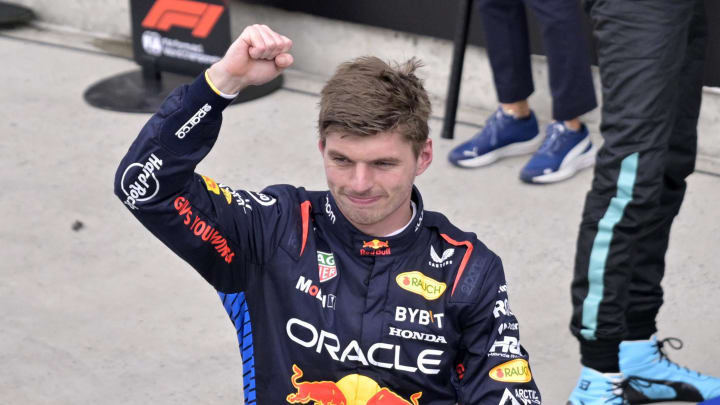F1 News: Max Verstappen Reveals the Worst at Red Bull - 'We're Struggling'

In a gripping Spanish Grand Prix that saw Max Verstappen emerge victorious, the Red Bull driver candidly expressed during a post-race press conference that the race was "challenging and not straightforward." Verstappen’s strategy, which crucially included overtaking Lando Norris and George Russell at the race-start, and an aggressive pit stop strategy, played pivotal roles in his success. Despite these effective tactics, Verstappen noted ongoing issues with maintaining optimum pace and tire degradation, which added layers of difficulty to securing his win.
During the intense aftermath of the Spanish Grand Prix, the Dutchman's candid reflections at the post-race press conference painted a complex picture of Red Bull Racing's current standing, despite his victory at the circuit. Verstappen, usually lauded for his surgical precision on the track, revealed a mix of strategic triumphs and underlying technical concerns that could spell future challenges for the team.
The race itself was a masterclass in tactical driving and team strategy. Verstappen, however, was quick to highlight the pivotal moments that defined the outcome. His initial maneuver to overtake Lando Norris right at the start was, by Verstappen's own admission, "quite critical." This decisive early move set the stage for what was to become a delicate balancing act of aggression and control. The subsequent overtake of George Russell allowed him to build a crucial first-stint lead, showcasing Red Bull’s effective strategy in the opening laps.
The Dutch champion described these moves with a blend of tactical satisfaction and a hint at the necessity of such aggressions:
"It was quite critical to get ahead of Lando...and then getting ahead of George was very important for that first stint," he said. Yet, this was not a race of pure domination as often seen in Verstappen's performances; the victory came with its sweat and challenges.
Despite these well-executed strategies, the 2-time champion expressed concerns over the RB20’s pace and its tire degradation issues.
"We were quite aggressive on the strategy as a team with our pit stops… but I do think that we're struggling a bit for the optimum pace, lacking a bit of tire deg towards the end of every stint. So it wasn't a very straightforward, easy race. I mean, Lando was catching quite hard at the end. But luckily, it worked out that it was just enough." Verstappen stated.
The decaying grip levels brought Norris alarmingly close in the final laps, setting a tense finish narrative that Red Bull might not have anticipated.
What’s striking here is Verstappen’s transparency about the challenges faced. It's a rare crack in the usually impenetrable armor of Red Bull, hinting at potential vulnerabilities that other teams might exploit. His acknowledgment of the performance struggle, especially related to tire degradation, is crucial as it could dictate Red Bull's focus areas for development. As other teams continue to evolve their strategies and car setups, maintaining a competitive edge in tire management will be pivotal.
The rest of the race encapsulated the dramatic dynamism typically associated with the sport. George Russell's brilliant start and Norris's strong recovery were just parts of a larger narrative that saw strategic pit stops, aggressive tire management, and heart-stopping wheel-to-wheel racing. Meanwhile, incidents involving Carlos Sainz and technical challenges faced by others like Alex Albon underscored relentless unpredictability.
